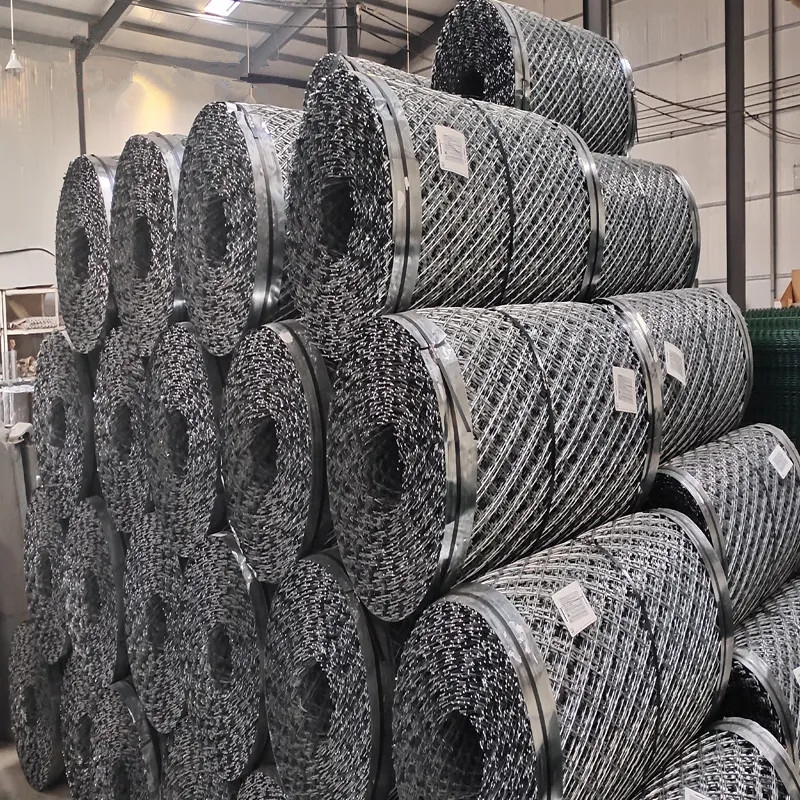Dec . 06, 2024 06:13 Back to list
best farm field fence
The Best Farm Field Fence A Comprehensive Guide
When it comes to establishing a farm, one of the most crucial decisions you'll make is choosing the right fencing. The fence not only outlines the boundaries of your property but also plays a significant role in the management of livestock and crop protection. In this article, we will explore the best types of farm field fences, their advantages, and the considerations you should keep in mind before making your purchase.
Importance of Farm Field Fencing
Farm field fencing serves multiple purposes. It protects livestock from predators, prevents them from wandering off, and helps in controlling grazing patterns. Additionally, a good fence can protect crops from herbivores like deer and rabbits while also marking the boundaries of your property. Effective fencing contributes to the overall security and management of your farm.
Types of Farm Fencing
1. Barbed Wire Fencing This is one of the most traditional and commonly used types of farm fencing. Barbed wire is made of twisted wire with sharp points that deter animals from pushing against or jumping over. It's relatively inexpensive and easy to install, making it a popular choice for large pastures. However, it may not be suitable for smaller livestock, such as sheep or goats, as they can become entangled.
2. Electric Fencing Electric fencing is a highly effective option for keeping livestock within designated areas and deterring predators. It works by delivering a mild electric shock to animals that touch it. This type of fencing is adjustable and can be used for various livestock types. Although it requires a power source and a bit more initial investment, the long-term benefits often outweigh the costs.
3. Wooden Fencing Wooden fences offer a traditional and aesthetically pleasing option for farms. They are sturdy and can effectively contain larger animals, such as horses and cattle. However, wooden fencing requires regular maintenance and can be more expensive compared to other options. Additionally, it can rot or succumb to termites if not properly treated.
4. Vinyl Fencing Vinyl fencing is gaining popularity due to its low maintenance requirements and longevity. These fences do not splinter, rot, or require painting, making them a low-cost solution over time. While they can be more expensive upfront, the durability and aesthetic appeal can be worth the investment, especially along driveways or near homes.
best farm field fence

5. Chain Link Fencing While not as common for agricultural purposes, chain link fencing can be effective for specific applications like keeping animals in small areas or protecting crops. The visibility provided by the chain-link design can be beneficial for watching over the property. Nevertheless, it may not provide the same security as other types of fencing, and animals can potentially dig under it.
Considerations When Choosing a Farm Fence
1. Type of Livestock The kind of animals you plan to keep on your farm can significantly influence your fencing choice. For instance, cattle and horses might require sturdier materials, while sheep may need a different solution to prevent them from getting stuck.
2. Budget Different fencing types come with varying costs. Assess the initial investment and ongoing maintenance costs to determine what fits within your budget. It’s important to consider the long-term benefits of investing in a durable, low-maintenance option.
3. Terrain and Location The landscape of your farm can also affect your fencing decision. Hilly, rocky, or uneven terrains may require specialized installation techniques or fencing materials that can withstand such conditions.
4. Legal Regulations Always check local regulations regarding agricultural fencing. Some areas have specific requirements that might dictate the height or style of the fencing.
5. Aesthetic Appeal If your farm is also your residence, choosing a fence that complements the look of your home or landscape can enhance your property’s overall appeal.
Conclusion
Selecting the best farm field fence requires careful consideration of various factors, including the type of livestock you own, your budget, and the local landscape. Each fencing type comes with its own set of advantages and challenges. By understanding your specific needs and doing thorough research, you can establish a secure and effective fencing system that adds value to your farm while ensuring the safety of your livestock and crops. Ultimately, investing in the right fence will contribute significantly to the success and management of your farming operation.
-
Enamel Cast Iron Casserole - Anping County Xingzhi Metal Wiremesh Products Co., Ltd.|Heat Retention,Versatile Cooking
NewsAug.16,2025
-
Enamel Cast Iron Casserole-Anping County Xingzhi Metal Wiremesh Products Co.,Ltd|Heat Retention&Non-Stick Surface
NewsAug.16,2025
-
Enamel Cast Iron Casserole - Anping County Xingzhi Metal Wiremesh Products Co., Ltd | Heat Retention, Non-Stick, Multi-Functional
NewsAug.16,2025
-
Enamel Cast Iron Casserole-Anping County Xingzhi Metal Wiremesh Products Co.,Ltd|Heat Retention,Non-Stick Surface
NewsAug.16,2025
-
Enamel Cast Iron Casserole - Anping County Xingzhi Metal Wiremesh Products Co., Ltd|Heat Retention&Non-Stick Surface
NewsAug.15,2025
-
Enamel Cast Iron Casserole - Anping County Xingzhi Metal Wiremesh Products Co., Ltd | Heat Retention, Versatile Design
NewsAug.15,2025



